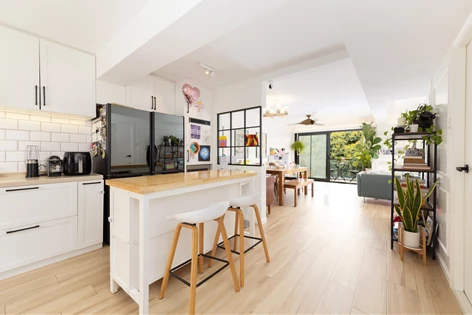
17 May 2018 - OKAY.com property agent Liza Boltz outlines questions to ask when negotiating a Hong Kong property purchase, including bank valuation, comparable properties, settlement with property owner and property agent services.
1. What are the comparable properties in the same building/district?
Work with your property agent to identify similar transactions in the same district, and the history of the building. Your property agent has access to accurate data from multiple sources, such as the EPRC, which they can present in a spreadsheet for your reference. Your property agent can also speak from professional experience, especially if you’re looking at village house, which tends to have lesser-known features, such as whether it has an in-deed garden and parking space clearly attached to the ownership of the property.
2. What is the bank valuation of a property?
A bank’s valuation is the basis upon which a bank would finance a property purchase and lend a given percentage of the assessed value, but do note that it is not the amount that the bank will lend. For example, if a bank values a property at HK$10 million and approves a 50 per cent loan-to-value mortgage, this means it is willing to finance HK$5 million of the purchase, and the purchaser must come up with the remainder of the purchase price.
Each bank will come up with its own valuation, and valuations across banks can vary by as much as 20 per cent due to different banks’ internal policies and risk tolerance, which can change over time. The bank valuation of a property has historically tended to be a little lower than market price. However, bank valuations are not the “true” valuation of a property but merely a reference. When your purchase price is higher than the bank valuation (as is often the case), you would have to come up with the additional value yourself. So, using the example above, if you purchased a property for HK$11 million, and your financing bank was willing to lend 50% of its assessed bank valuation of HK$10 million—i.e. a loan of HK$5 million—you would need to finance HK$6 million of the purchase through other means.
It is worth noting that banks typically do not fully factor in specific renovations or improvements of a property into their valuation. So, if the asking price of the property you have in mind is substantially higher than bank valuation, it might be justified by exceptional renovations, decorations or fixtures—investments the seller made that they are factoring into the price, but that the bank does not fully recognise. If the asking price of the property is lower than the bank valuation, then you know you have a keen seller, and another property to add to your must-see list—though one that may not be on the market for very long.
Many major banks in Hong Kong, such as HSBC, Bank of China, Bank of East Asia, and Standard Chartered, offer bank valuation services online. You can also contact banks directly to obtain a verbal quote. Be prepared to answer questions such as whether parking space is included, or if the property comes with a terrace or a roof top as these features can affect the value of the future property.
3. When does the property owner want settlement (i.e. “completion” of the purchase)?
In many cases, the property goes to the party who makes the highest offer. However, the completion date may matter more than you think, depending on the seller’s situation, and can outweigh the difference between two competing bid prices on a property. An example of this would be a seller who is moving overseas and prefers a quick settlement. Conversely, if the seller needs time to find another apartment to move to, they may prefer a delayed settlement. In these situations, you may be able to “outbid” a competing (higher) offer by accommodating the seller’s desired completion period. So, if the price gap is proving challenging to bridge during a negotiation, ask if an expedited or extended settlement period would help achieve the seller’s goals.

4. What can my Hong Kong property agent do for me?
A good property agent can save a buyer a tremendous amount of time and frustration, help you avoid a poor purchasing decision, or find a hidden gem in the market. While real estate agents in other countries, such as the United States, often exclusively represent the seller, Hong Kong property agents can work for buyers, too. This “dual agency” representation is sometimes criticised for creating a conflict of interest. However, it also facilitates a more direct negotiation between the buyer and seller, with fewer parties involved in the negotiation.
Ultimately, your agent should save you time and effort by helping you hone in on options that best suit your preferences and circumstances, and by doing valuable due diligence on the property.
Read our comprehensive guide for more details on how you can make the most of your agent’s services.
5. What do I need to prepare ahead of my purchase?
Here is what you need to prepare to move quickly through purchasing your dream home or investment:
- An understanding from your bank of how much you could obtain in mortgage financing. Mortgage brokers can also be helpful in obtaining quotes from multiple banks.
- A solicitor to do your conveyancing
- At least 5 per cent in cash for the initial deposit, and another 5 per cent at the official signing of the Formal Agreement for Sale and Purchase 1 per cent in commission to your real estate agent based on the general practice in Hong Kong
- Stamp duty—to be charged by the government






